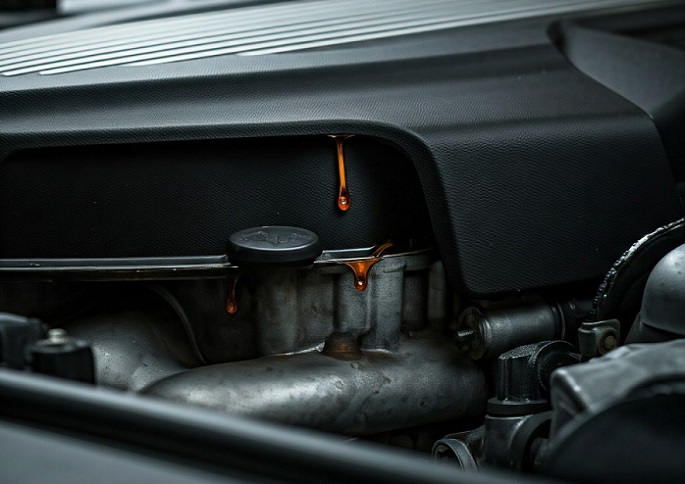Collaborating Post
Motor Oil: The Lifeblood of Your Car’s Engine
Published : 30 Dec 2024, 22:09
Updated : 30 Dec 2024, 22:33
Motor oil is often referred to as the "lifeblood" of a car’s engine, and for good reason. It plays a critical role in ensuring the smooth operation, longevity, and efficiency of your vehicle. Without the proper care and attention to motor oil, your engine’s performance can suffer dramatically, leading to costly repairs and reduced reliability.
Why Is Motor Oil So Important?
The engine of your car is a complex system with hundreds of moving parts working together at high speeds and temperatures. Motor oil is essential for several reasons:
|
Motor oil forms a protective film between engine parts, reducing friction and preventing metal-to-metal contact. This minimizes wear and tear on critical components such as pistons, cylinders, and crankshafts. |
|
The engine generates intense heat during operation. While the cooling system handles most of the heat, motor oil helps dissipate excess heat from parts that the coolant cannot reach. |
|
Over time, dirt, debris, and microscopic metal particles can accumulate inside the engine. Motor oil contains detergents and dispersants that help remove these impurities, preventing sludge buildup and keeping the engine clean. |
|
Motor oil contains additives that protect engine components from rust and corrosion caused by moisture and chemical reactions. |
|
Oil acts as a sealant in the small gaps between the engine’s piston rings and cylinder walls, maintaining compression and improving fuel efficiency. |
What Happens Without Proper Motor Oil Maintenance?
Failing to use the right type of motor oil or neglecting regular oil changes can lead to serious problems:
- Increased Engine Wear: Without proper lubrication, parts wear down quickly, reducing engine lifespan.
- Overheating: Old or insufficient oil loses its ability to cool the engine, leading to overheating and potential engine failure.
- Sludge Buildup: Dirty oil thickens into sludge, clogging vital engine parts and reducing efficiency.
- Reduced Fuel Economy: Poor lubrication forces the engine to work harder, increasing fuel consumption.
- Costly Repairs: Lack of proper maintenance can result in expensive repairs, such as replacing a seized engine.
Selecting the correct motor oil is crucial for your engine’s health. Here are key factors to consider: The viscosity of oil determines how it flows under different temperatures. The most common grades, like 5W-30 or 10W-40, are specified in your vehicle’s owner manual. For example, colder climates require oil with a lower "W" rating for better flow in freezing temperatures.
Key Factors in Selecting LONGLIFE-04 Oil for BMWs
Selecting LONGLIFE-04 oil for BMW vehicles requires consideration of the following key factors:
Viscosity performance: Ensure that the oil meets the recommended viscosity specified in your vehicle's owner's manual (e.g. 5W-30 or 0W-40). This ensures optimal engine performance at different temperatures.
Engine specifications: LONGLIFE-04 is suitable for engines with exhaust gas filtration systems such as diesel particulate filters (DPF). It reduces emissions and protects sensitive engine components.
Driving conditions: For urban driving with frequent stops or for vehicles used in cold or hot climates, LONGLIFE-04 oil with a synthetic base provides better performance and protection.
Regular use of LONGLIFE-04 oil in accordance with BMW recommendations will extend engine life and improve vehicle performance.
BMW ll04 oil can be synthetic, semi-synthetic, or mineral oil, but it's important to consult your vehicle's manual to determine the specific type recommended for your BMW model. Using the incorrect oil can affect engine performance and longevity.
The Importance of Regular Oil Changes
Even the best motor oil degrades over time due to heat, contamination, and chemical reactions. Regular oil changes are vital to maintaining engine health. Most manufacturers recommend an oil change every 5,000 to 10,000 kilometers (or 3,000 to 6,000 miles), depending on your driving habits and oil type.
Signs You Need an Oil Change:
- Dark, dirty oil on the dipstick.
- Low oil levels.
- Warning lights on the dashboard.
- Engine noise or reduced performance.
Conclusion
Motor oil truly is the lifeblood of your car’s engine, ensuring it runs smoothly, efficiently, and reliably. By choosing the right oil and adhering to regular maintenance schedules, you can extend the life of your engine, improve fuel economy, and avoid costly repairs. Proper care of motor oil not only benefits your vehicle but also contributes to environmental sustainability by reducing harmful emissions.
Taking care of your car’s engine begins with respecting the vital role of motor oil—because, ultimately, a healthy engine means a safe and enjoyable driving experience.


